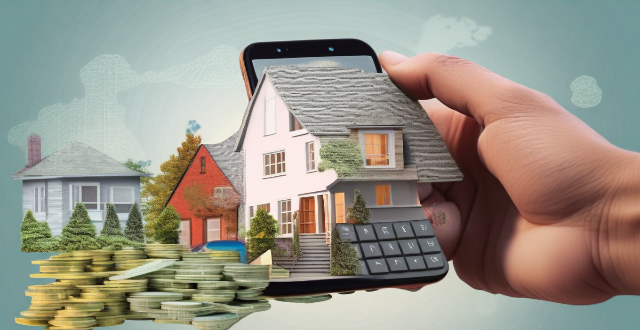This article discusses the factors affecting the down payment amount for buying a house, including credit score, type of mortgage, and price of the house. It also provides common down payment requirements for different types of mortgages and tips for saving for a down payment.

How Much Down Payment Do I Need to Buy a House?
Introduction
Buying a house is a significant financial decision, and one of the critical factors to consider is the down payment. The amount of down payment you need can vary based on several factors, including your credit score, the type of mortgage you choose, and the price of the house. In this article, we will discuss the different aspects of down payments for buying a house.
Factors Affecting Down Payment Amount
Credit Score
Your credit score plays a crucial role in determining the amount of down payment you need. Generally, if you have a high credit score, lenders may offer you a lower down payment requirement. On the other hand, if your credit score is low, you may need to make a higher down payment to compensate for the increased risk.
Type of Mortgage
The type of mortgage you choose can also impact the down payment amount. For example, conventional loans typically require a down payment of at least 20%, while FHA loans may allow as little as 3.5% down payment. It's essential to research and compare different mortgage options to find the best fit for your financial situation.
Price of the House
The price of the house you want to buy is another factor that affects the down payment amount. Generally, the more expensive the house, the higher the down payment requirement. However, keep in mind that lenders usually have maximum loan limits, so even if you can afford a higher down payment, it might not be necessary.
Common Down Payment Requirements
Here are some common down payment requirements for different types of mortgages:
- Conventional Loans: Typically require at least 20% down payment.
- FHA Loans: May allow as little as 3.5% down payment.
- VA Loans: Offer 100% financing options for eligible veterans with no down payment required.
- USDA Loans: May provide 100% financing options for eligible rural homebuyers with no down payment required.
It's important to note that these are general guidelines and actual requirements may vary based on individual circumstances and lender policies.
Tips for Saving for a Down Payment
If you're planning to buy a house, here are some tips to help you save for a down payment:
- Create a Budget: Start by creating a budget and identifying areas where you can cut back on expenses. This will help you save more money towards your down payment goal.
- Set a Savings Goal: Determine how much you need to save for a down payment based on your desired house price and preferred mortgage option. Set a realistic timeline and calculate how much you need to save each month to reach your goal.
- Automate Your Savings: Consider setting up automatic transfers from your checking account to a savings account dedicated solely to your down payment fund. This will help you stay disciplined and consistent with your savings plan.
- Explore Down Payment Assistance Programs: Research and explore down payment assistance programs available in your area. These programs may provide grants or low-interest loans to help you cover part or all of your down payment costs.
Conclusion
In conclusion, the amount of down payment you need to buy a house depends on several factors such as your credit score, the type of mortgage you choose, and the price of the house. By understanding these factors and following some tips for saving for a down payment, you can make an informed decision about how much down payment you need and create a plan to achieve your goal of homeownership.